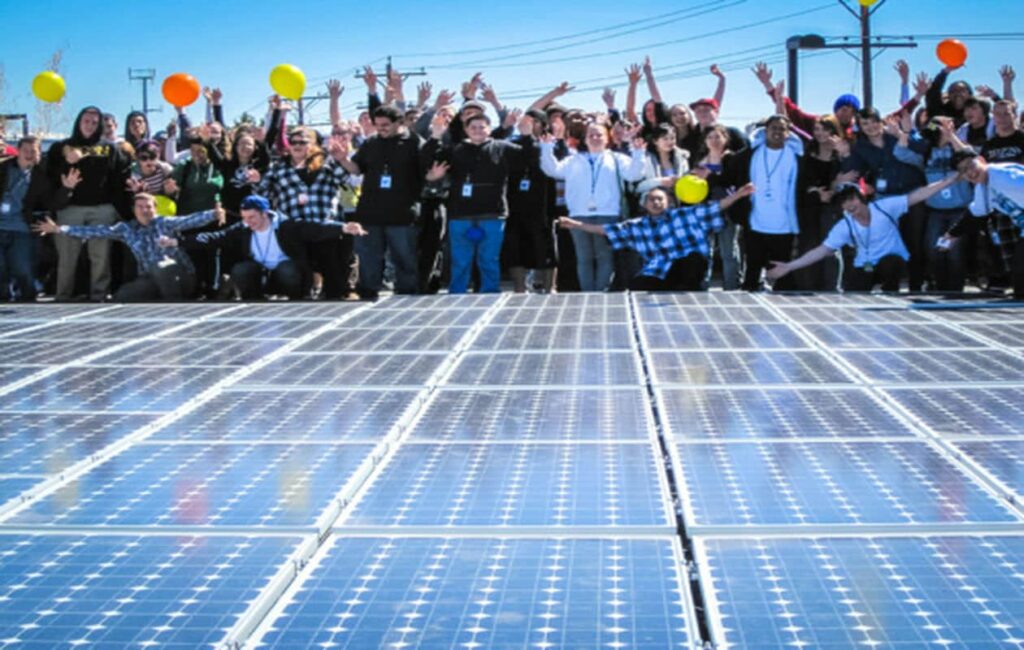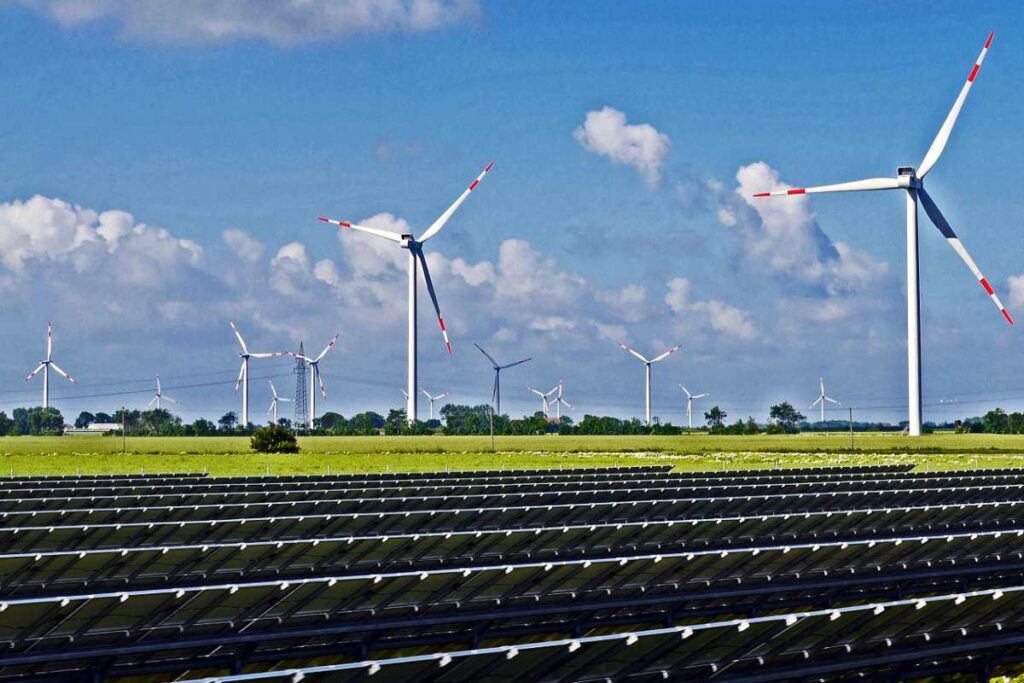Tom Steyer is a multifaceted individual who is obviously looking to leave indelible marks on humanity. He is a climate activist, an investor, and a hedge fund manager with a portfolio worth billions of dollars.

Steyer recently published a new book, Cheaper Faster Better, in which he argues that climate technologies and clean energy are poised to dominate the global energy economy.
Capitalists Can Drive the Adoption of Renewables
Steyer obviously believes strongly in capitalism’s ability to salvage the planet from an impending climate meltdown. This is, in fact, one of the core messages of his new book.

In a recent interview, Steyer said, “We’re doing worse in terms of climate impact than people predicted, but our technological capability and economic capability to solve this is so much better than people understand—it’s terrific.”
Tom Steyer’s Pert Biography
Steyer grew up in San Francisco but is originally from New York. In 1986, he made his fortune in the former by investing in hedge funds. By 2012, Steyer was already a billionaire and decided to step away from his hedge fund company, Farallon Capital.

Steyer ran to fly the Democratic flag at the 2020 presidential elections but finished third after in the primaries.
ALSO READ: Hollywood Star Ryan Reynolds’ Co-owned Or Sold Companies Are Valued At $14 Billion
Post-Politics Adventures of the Billionaire Hedge Fund Manager
After the adventurous effort to become the US president, Steyer settled for doing something impactful. In 2021, he started a global investment firm focusing on climate initiatives. So, Steyer and another fund manager, Katie Hall, cofounded Galvanize Climate Solutions.

Steyer recently interviewed with Newsweek, in which he explained how clean energy may be a deal breaker in the coming elections and how the sector is on the verge of compounding explosively.
Data of Renewables’ Progression Suggests Massive Market Share in the Future
Steyer affirms that clean energy is the next big thing on human civilization’s radar, and he backs up that call with some data. According to him, in 2023, more than 86 percent of new electricity generation around the globe will come from renewable sources.

Interestingly, global romance with renewables seems to be manifesting in everyday consumerism. People are going for climate-friendly products more often than in the past, and these decisions are often spontaneous, with minimal compelling.
Feasibility of Transitioning From Dirty to Clean Energy Sources
Then, there is the question of balancing meeting energy requirements and phasing out dirty energy sources. Steyer feels we need to embark on a global mass retirement of all dirty energy plants.

He acknowledges that the US has initiated that drill and admits that phasing out dirty energy plants may take longer for some countries. For example, Steyer projects that India would require a 500 percent increase in its energy generation by 2050 and may require existing plants to meet up.
Renewables are Getting Cheaper by the Day
Despite the apparent sluggishness with which renewable energy and technologies are catching on, Steyer is very optimistic about the outcome in the near future. He projects that the use of fossil fuels will decline sharply by the end of the decade.

Steyer then cites some other metrics in favor of renewables. One is the 50 percent decline in the cost of manufacturing batteries in the 2023 fiscal year alone. Again, he points to the climbing price of fossil fuels.
How to Make Renewables Attractive to Capitalists
Unfortunately, capitalism is always out for the profit. Capitalists hopped on the fossil fuel bandwagon because it was relatively cheaper and more efficient than previous sources, thus stoking industrialization and profits. However, it took a while before we realized this energy source was burning up our planet.

So, Steyer recommends incentivizing the use of renewables and penalizing big-time consumers of energy from dirty sources for cashing out at the expense of global climate health.
Establishing a Common Pact that Governs Renewables is Essential
Steyer admits that the same economics does not exist in the various sovereignties around the globe. However, it is possible to arrive at a common benchmark with which to drive a global adoption of renewable energy.

For now, accountability is lacking in the area of emission and sustainability measurements. However, Steyer feels the planet and pro-climate stakeholders can still win even without those.
Executive Compensation Can Make Adoption of Renewable Energy Attractive
Steyer also spoke about how his company, Galvanize Climate Solutions, is campaigning for executive compensation as a tool for driving global-scale adoption of renewables.

Steyer said exploiting humans’ natural self-interest would be a good initiative. Give them guardrails to live by regarding energy generation and use. Similarly, establish commensurate compensation for those flying the flag of renewables. Steyer suggests that before long, all we would need to do is sit down to watch the exponential growth of renewables.
ALSO READ: 7 Money Traps To Avoid and How To Save Big During Monthly Grocery Shopping
Creating a Sustainable and Profitable Energy Organization
However, Steyer points out that the goals that drive himself, Hall, and the shareholders at Galvanize are not the variant of selfishness that wants to make the highest profit by any means possible.

Steyer suggests that Galvanize is driven by a higher arching goal: to emerge as a clean company with resilient and long-range sustainability. He affirms that a company solely out to make money using any value-creation method has got it all wrong.
Renewables and Politics, this November
Finally, Steyer also addressed the political implications of renewable energy in the coming elections. He pointed out that the two potential administrations in the coming US presidential elections have very dissimilar approaches to energy.

Overall, Steyer affirms that the US needs to reclaim its leadership in developing renewable energy technologies and enforcing climate change pacts. This will help us retain our relevance as global leaders.
You Might Also Like:
Save £109 a Year on Water Bills With a New Toilet: Some Homes Waste up to £300 Each Year
Is This Fair? Paying $70 for Extra Legroom While Others Get It for Free
US Officials Raise Alarm Over Fraudulent SNAP Transactions
Couple Forced To Sell Their $2 Million Dream House for Only $200,000
Chicago Man Fights Back As His Property Tax Jumped From $1,800 to $30,000 in 2024

